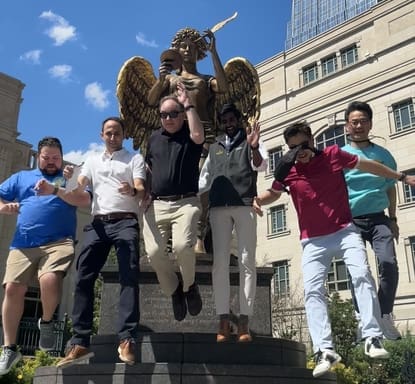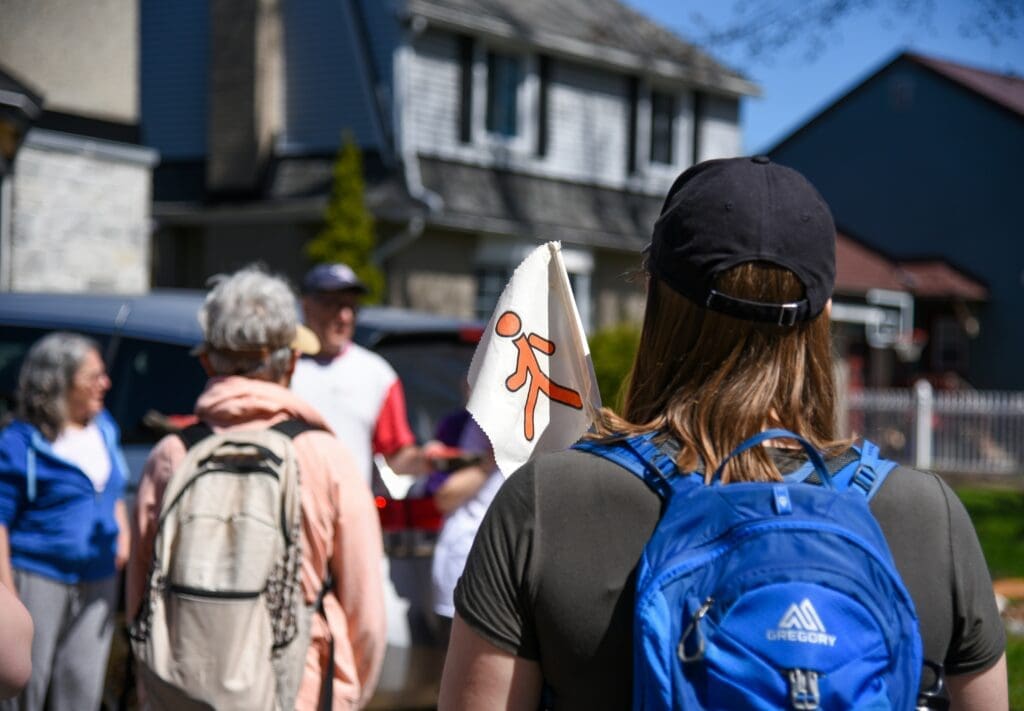If you’ve watched business news on any channel, you’ve probably heard about the scavenger hunt craze sweeping offices all over the globe. Does it leave you wondering what all the hype is about? Scavenger hunts are a perfect go-to for engaging employees, building team spirit, increasing healthy competitiveness, and a growing desire to attain goals and overcome challenges.
It’s easy to throw team building into the category of “luxury” expenses. Still, the smartest companies, and the highest-grossing companies recognize that employees that feel valued perform at their highest capacity. In fact, 93 percent of employees who say they feel valued at their job report they are motivated to do their best work. What does this mean in dollars and cents? Turns out, quite a bit. Companies with engaged employees report annual revenues that are 2.5 times higher than companies whose employees did not feel engaged. A small investment into the health of your team dynamics could mean considerable gains to your bottom line.
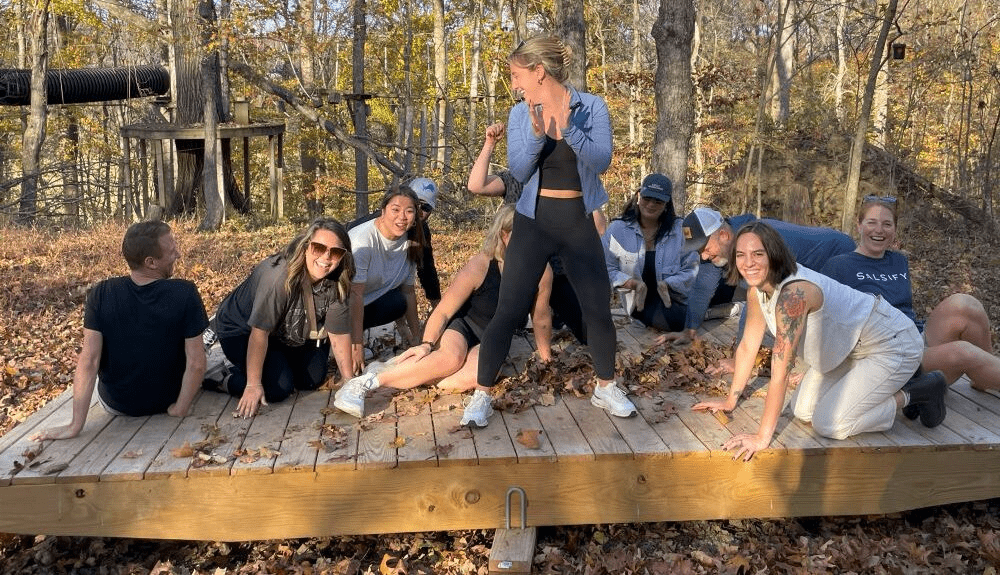
Benefits of Scavenger Hunts for Team Building
Encourage Leadership, Communication, and Interaction
Scavenger hunts encourage leadership, communication, and interaction by their very nature. When lots of different decisions must be made, someone has to take charge. This allows for leadership skills to be fine-tuned in a playful environment that feels non-threatening to the rest of the team. But it doesn’t end there, how the team members communicate about strategies, often during time constraints, shows them in real life what gets the job done, and what leads to more frustration and confusion.
These skills are brought back into the workplace connected to feelings of playfulness, connection, and trust, which psychologists say, makes them more likely to stick around. In today’s world of slack channels, google hangouts, and increasingly electronic means of communication, the face to face interaction throughout the game is often the most that they will see their coworkers during one period of time. This reintegration opportunity is vital to keep empathy and connection active in the workplace.
Improved Business Skills
Scavenger hunts aren’t just for interpersonal skills. The skills needed to complete a scavenger hunt successfully are often the same as those required to be successful in the business world. While playful, scavenger hunts introduce an element of stress in the form of timelines and competitiveness.
This non-threatening stress requires players to be able to think and analyze under pressure. Teams must keep their cool and be able to remain analytical while balancing the need to be timely. Too much analysis could cause their team to lose the game, too little study could leave their team missing the mark and losing clues. No matter the industry, this remains a vital aspect of managing timelines and projects-especially when there are lots of other team members involved.
Encourages Creativity
We all know how important it is to be able to follow specifications, but what happens when a project goes off-spec? Employees who are able to think “outside the box” are vital for getting their teams back into workflow and maintaining productivity. Studies into the positive psychology of employees found that when team members were encouraged to be creative, not fear failure, and use a growth mindset, their productivity dramatically increased over previous years.
During a scavenger hunt, similar to business, things are not always as they seem. The combination of cryptic language, veiled outcomes, and incomplete information encourages them to remain curious, and stay open to unique possibilities.
Increase in Morale
We have all heard the saying that laughter is the best medicine. Laughter through play has some serious benefits for mental health, which translates to stress reduction, increased social connections, and the release of the feel-good chemical, endorphins. With mental health increasingly in the spotlight, ensuring the health of your team could be as simple as allowing them opportunities to laugh together. The ability to show their team members a silly side of their personality can also help to increase empathy and connectedness in the workplace.
Flexibility
While this may seem obvious, the flexibility of scavenger hunts is one of the most attractive factors in this feel-good activity. Scavenger hunts are full of possibilities and can be played almost anywhere. While it often makes sense to stage your hunt in a place where there are lots of people and places to interact with, they require no fancy ballrooms, convention centers, or AV equipment.
Build Problem-Solving Skills
By nature, the structure of a scavenger hunt is that a problem is presented to a team, time constraints and competitive stress are added, incomplete information is given, and players are asked to come up with an answer while keeping their team productive. Sound familiar? Most “hiccups” in business follow this same pattern. Exploring solutions through play allows them to be integrated on a level that is non-threatening, but still valuable in everyday scenarios.
Easy to Customize
Highlighting your teams, what makes them awesome, and fun facts that new members may not know are some of the ways that scavenger hunts can be made custom just for your group. This level of personalization makes them feel like they are a part of something special, and are integrated into the company culture. Just a few snippets of personal information added to your scavenger hunt could allow for a deeper feeling of acceptance and team mentality.
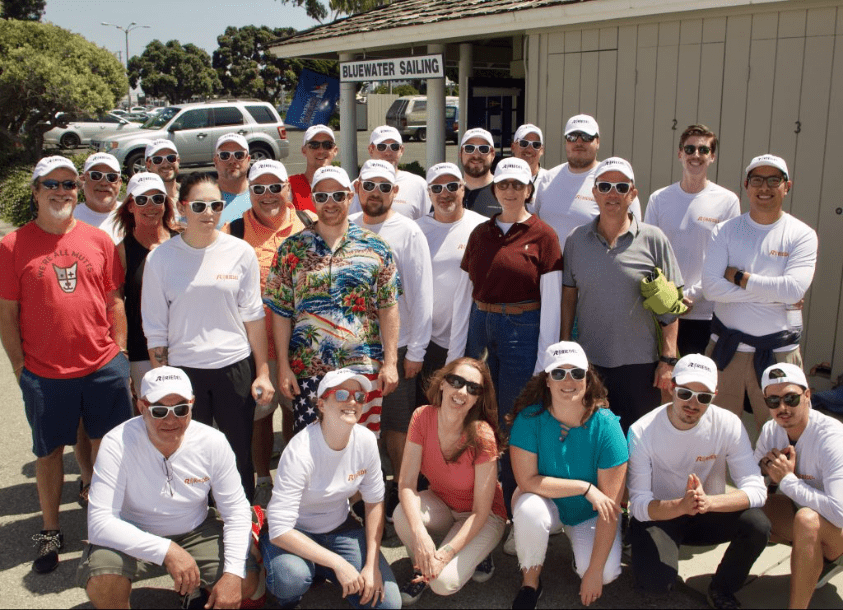
Tips for Planning a Scavenger Hunt
Plan Ahead
A good scavenger hunt takes into account all the variables of the environment. Be sure to check the weather, any closings along your route, and outside influences like mobility and individual needs. Encourage your group to form teams well in advance to avoid confusion on the day of your hunt. Let your creativity shine! Decide on special outfits, hats, or even armbands to show your team spirit!
The Longer, the Better
As you plan your clues and challenges, it may be tempting to cut your list short. However, scavenger hunt veterans know that avid players will work through clues quickly! Be sure you provide lots to choose from and make each challenge worth different points. Naturally, the harder the clues, the more points they are worth. The more your teams have to choose from, the more they will be encouraged to strategize and develop stronger skills.
Keep Teams Small and Diverse
Consider pairing groups that don’t naturally communicate during a normal workflow. This kind of diversity in your teams allows people to form bonds they otherwise wouldn’t have the opportunity to develop. One of our favorite challenges from our scavenger hunts asks participants to record a short video explaining a new thing they’ve learned about a team member. The videos are often a favorite of our highlight reel as people connect on topics that they wouldn’t naturally discuss at the water cooler.
In order to facilitate these natural conversations, and allow for each member to be actively involved, it’s essential to keep teams between 6-8 people. With this number, you avoid the stragglers and team members who would naturally just go with the flow and sit on the back burner.
Encourage Teams to Build Themselves
Leave the hierarchy in the office on this one. Working together without appointing pre-determined leaders allows players to show their skills in a different setting. You may not realize that Jane, with accounting, is so good at solving puzzles or boosting team morale. Outside of the typical office setting, you might be surprised by the natural flow of strengths you see exhibited in your teams. Starting with a team activity a few weeks in advance can loosen up your groups and make them more comfortable.
Make it Personal
Customizing your scavenger hunt will do wonders to make everyone feel included and double down on the team building benefits. Try asking for fun facts about each of your team members and including them in the game. Some examples of customizations might be asking about favorite music, books, favorite sports teams, family activities, and hobbies outside of work. This is also an opportunity to really highlight your mission, vision, and values of your company.
Does your company have an extraordinary origin story it would like to highlight? This is the place to remind your veteran employees, and welcome in your newer employees.
Reward the Winners and End With a Bang!
The only thing better than being given a gift is feeling like you’ve earned it while having fun! Offering rewards to the winning team will give the extra boost in morale while allowing other team members to learn to celebrate wins. Our favorite prizes include humorous trophies, gift cards to restaurants, coffee shops, or online shopping service. Be sure to gather everyone together for a silly awards ceremony to conclude your hunt!
Don’t Forget the Nitty Gritty
No one likes to be the rule setter, but it’s important that your groups know the ground rules before the start of the game. By sending out an orientation email a few days ahead of time, everyone will be able to play without the stress of being a referee for the duration of the game. Remind your teams that even though the scavenger hunt is meant to be a fun and playful event, they are still representatives of the company.
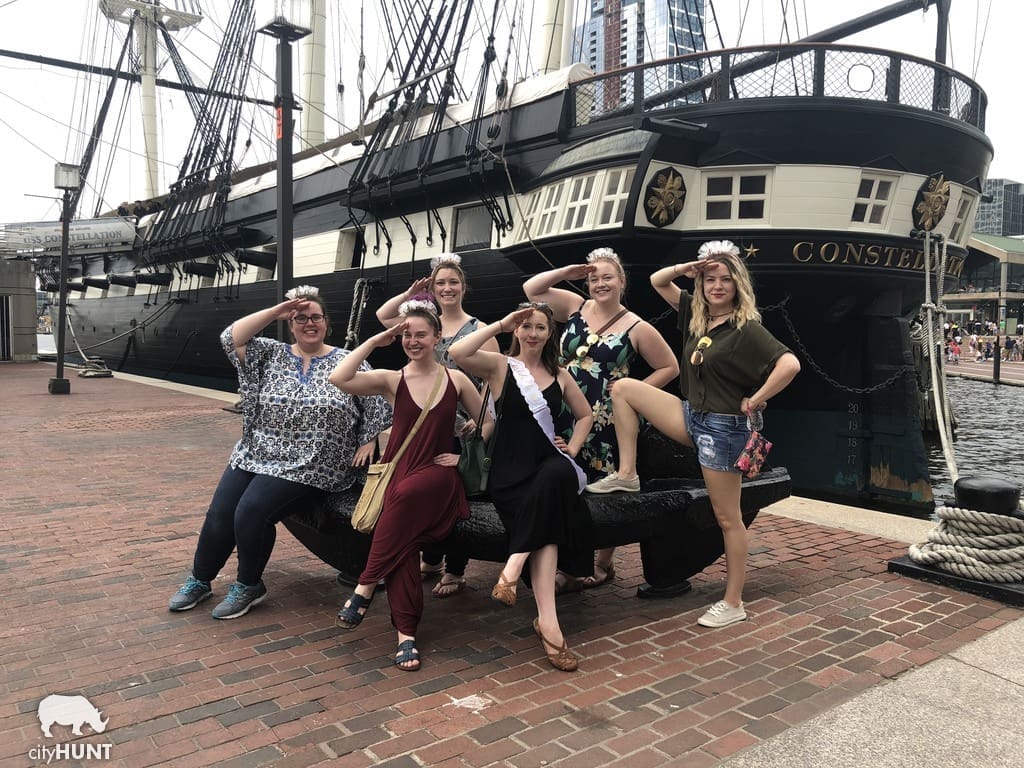
How to Make Scavenger Hunts More Fun
Prioritize Human Interaction
Chances are, your employees rarely have the opportunity to see the silly, funny, or casual side of each other in the office. Instead of focusing on challenges that are external, be sure to provide lots of challenges that require team members to work together. Breaking down the professional facade will help to raise empathy and connectedness even when they are back at the office.
Next time a coworker is giving them a hard time, they are more likely to remember the human statue they built with them and cut them a little more slack. Allowing your team to see a more human side of each other will pay off in the long run.
You might have heard the phrase “pictures or it didn’t happen!” Take this advice to heart. Prioritizing clues that require photo or video submissions require participants to step out of their comfort zone and express themselves. The group support for vulnerability fosters a feeling of safety to be authentic, and can even provide a framework for smaller events like team building games back at the office.
Outside of the team building assets your players are sure to pick up, the highlight reel from photo submissions are priceless! Consumers want to work with companies that prioritize a good human experience. These photos and videos are perfect for sharing with social media, blog posts, or just internal bulletins and company scrapbooks.
Include Clues and Challenges that Showcase Unique Talents
Finding out fun talents about coworkers is a serious business. Clues that showcase unique talents encourage creativity and uniqueness within a bonded unit. Finding out more about each person’s unique hobbies, lifestyles, and funny attributes allows for more laughter and social bonding than just solving a problem together.
Consider clues that ask two or more team members to film a video of each of them performing their unique talents. You might find that Jan from sales is an expert juggler, or that Mike from compliance can still do a walking handstand. You never know until you ask!
Utilize Locations Outside of the Workplace
Getting your team into a different setting may be one of the most important elements of your entire hunt. Removing the familiar environment allows team members to more easily drop preconceived ideas of hierarchy, management, leadership, and coping skills. Changing up the routine of the daily interaction drastically increases the possibility that teams will allow something new to form from their time together.
The goal of your scavenger hunt is to shake things up and provide an opportunity to restructure dynamics. Get out and explore nearby towns, shopping districts, or downtown squares. Any place that there are lots of people and places to interact with is appropriate. Get some fresh air and some fresh perspective.
Let’s Connect!
You are not alone in this team building journey. CityHunt designs customized scavenger hunts across dozens of U.S. cities. Our techniques come from team building research at Stanford and the University of Pennsylvania.
Just call us at (1-877)-HUNT-FUN and tell us about your company and its unique team building needs. Or, fill out our contact form to start the conversation today. Once you fill out the form, we’ll call you back and discuss the best hunt for you and co-create the perfect hunt for your budget.



